Here’s the thing about short stories–nobody reads them. And I get that, having done my fair share of slogging through some mediocre short story collections (I will not name names). Sometimes the pay-off is there, but most of us read to be swept up, to learn, to escape. It’s hard to find sustenance in short stories.
Someone somewhere said, when explaining how plot works, that good novels explode and short stories implode. I like that. 12 pages can hold a charge so powerful that the shockwaves first move inwards, rattling you bones and causing the 70% of water in your body to slush around, and then the waves move out, loosening foundations and causing dust to loosen from cracks in the ceiling.
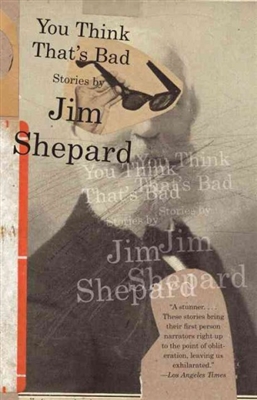 There are very few short stories that I have read that have that power. So keep that in mind, when I say that if you haven’t read Jim Shepard yet, you’re doing it wrong.
There are very few short stories that I have read that have that power. So keep that in mind, when I say that if you haven’t read Jim Shepard yet, you’re doing it wrong.
The most noticeable thing about Shepard’s short stories are how well researched they are. One story is a fictional account of the head of the Japanese special effects team on the original Godzilla film. The next is about arctic explorers. And then there is the story set in the near-future as the Netherlands are overrun with water from a melting polar ice-cap. (Want to read these stories? Pick up a copy of You Think That’s Bad)
This month, Jim Shepard’s newest release is not a short story collection at all. It’s a novel. But it is a novel that implodes.
Set in a Jewish ghetto during the Holocaust, The Book of Aron is 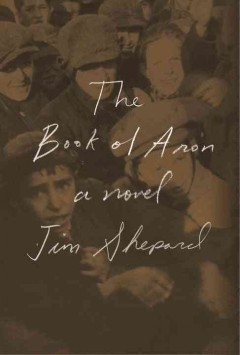 everything you expect from a novel of a man-made disaster. The characters are strikingly human. (Aron, a young smuggler scuttling through the ghetto, chooses his own survival over much else) Hope is a struck match; it is quick to be snuffed.
everything you expect from a novel of a man-made disaster. The characters are strikingly human. (Aron, a young smuggler scuttling through the ghetto, chooses his own survival over much else) Hope is a struck match; it is quick to be snuffed.
The claustrophobia of the ghetto, of what we all know is going to happen, presses the novel from all sides.
Shepard spares us from much of the horrors of the Warsaw ghettos. But the true hero of the novel (think a Polish Atticus Finch), Janusz Korczak, is unreal. But that’s the catch–he was real. Korczak, an advocate of children’s rights in pre-war Europe, he oversaw the children’s orphanage in the ghetto.
Shepherd gives the story of Korczak justice in that he doesn’t try to take it as his own. And that really is what is at the heart of what makes Jim Shepard’s stories so in tune–he compassionately borrows from the past, to give new life to what has been forgotten. He reminds us to remember.
Jim Shepard will be HERE at LEMURIA Wednesday, June 24th at 5.
Want to write your own short story? Try this short story generator.



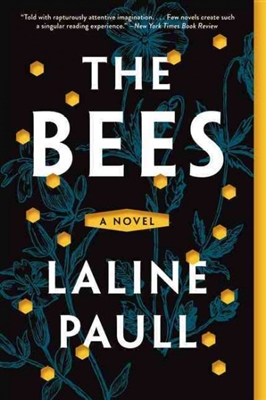

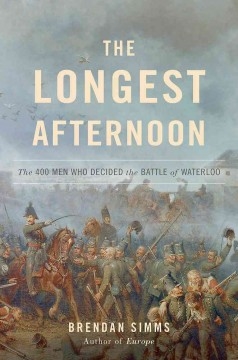
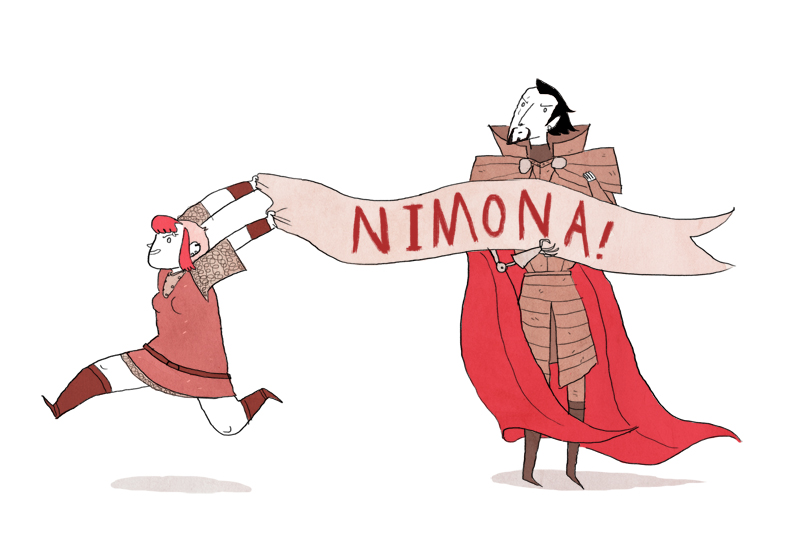
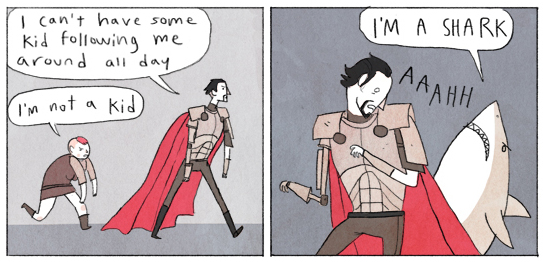
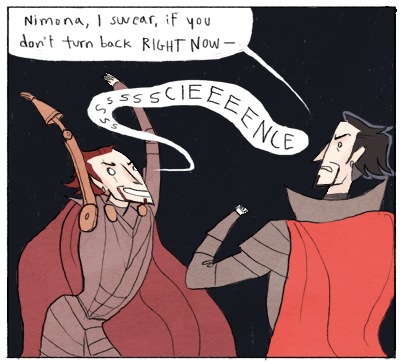
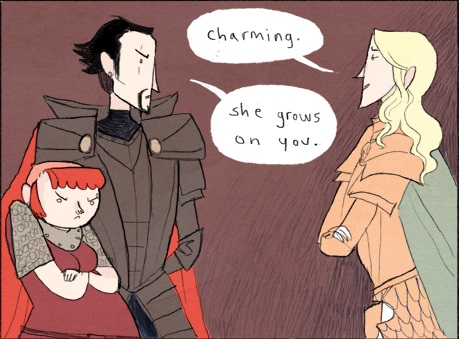









 This lovely graphic novel chronicles the entire history of one small space of earth. In 8,000 BCE a bog trickles out to the edges of the page; while in 1989, a house has been built on that very spot and two couples share cocktails and jokes in front of a dated coffee table. The geographical location never wavers, but to watch time weave in and out, changing the curtains,
This lovely graphic novel chronicles the entire history of one small space of earth. In 8,000 BCE a bog trickles out to the edges of the page; while in 1989, a house has been built on that very spot and two couples share cocktails and jokes in front of a dated coffee table. The geographical location never wavers, but to watch time weave in and out, changing the curtains, the rivers, and the wildlife- it feels so strange to have so much history sandwiched between so few pages. A mother stands in front of a window in the corner of the room and shows her baby the moon, and a bison sleeps exactly where the hearth will be in over 10,000 years.
the rivers, and the wildlife- it feels so strange to have so much history sandwiched between so few pages. A mother stands in front of a window in the corner of the room and shows her baby the moon, and a bison sleeps exactly where the hearth will be in over 10,000 years. Get In Trouble: Stories
Get In Trouble: Stories  Okay people. Why does no one buy Maira Kalman’s books?? This is beyond me. Kalman, writer, painter, children’s book author and illustrator, collaborator, art lover, and student of life, has put out yet another thoughtful and heart-tugging book. My Favorite Things is a collection of thoughts, memories, and objects that have gathered significance over the years. Similar to And The Pursuit of Happiness and The Principles of Uncertainty, My Favorite Things attributes poignant meaning to even the smallest of things. Instead of feeling forced or overly emotional, Kalman keeps her thoughts short and simple.
Okay people. Why does no one buy Maira Kalman’s books?? This is beyond me. Kalman, writer, painter, children’s book author and illustrator, collaborator, art lover, and student of life, has put out yet another thoughtful and heart-tugging book. My Favorite Things is a collection of thoughts, memories, and objects that have gathered significance over the years. Similar to And The Pursuit of Happiness and The Principles of Uncertainty, My Favorite Things attributes poignant meaning to even the smallest of things. Instead of feeling forced or overly emotional, Kalman keeps her thoughts short and simple. This book sheds light on the lives of people who lived in the shadows of their famous spouses, bosses, friends, and neighbors. Each mini biography is a page long, paired with unique portraits from more than 40 artists. Included in this collection is Charles Bukowski’s editor, Coco Chanel’s lover, Al Capone’s mentor, and Emily Dickinson’s dog. Did you know that Rosalind Franklin discovered that DNA had two forms and her research allowed Francis Crick and James D. Watson to prove the helix shape of DNA? Yeah well, now you do.
This book sheds light on the lives of people who lived in the shadows of their famous spouses, bosses, friends, and neighbors. Each mini biography is a page long, paired with unique portraits from more than 40 artists. Included in this collection is Charles Bukowski’s editor, Coco Chanel’s lover, Al Capone’s mentor, and Emily Dickinson’s dog. Did you know that Rosalind Franklin discovered that DNA had two forms and her research allowed Francis Crick and James D. Watson to prove the helix shape of DNA? Yeah well, now you do. Rene Denfeld stuns with this crystal clear novel about a death row inmate during his last days and the movements of his death penalty investigator as she tries desperately to uncover the truth surrounding his case. This novel is an incredibly hard sell because of the subject matter, but never have I experienced a book so concisely and exquisitely written. In the words of a customer, “not a word is wasted”. The Enchanted is set in a timeless, fuzzy landscape that is intent on keeping to the background so that the characters can take the main stage. It is a quiet, still book, with gleaming bits of gold shining through the cracks.
Rene Denfeld stuns with this crystal clear novel about a death row inmate during his last days and the movements of his death penalty investigator as she tries desperately to uncover the truth surrounding his case. This novel is an incredibly hard sell because of the subject matter, but never have I experienced a book so concisely and exquisitely written. In the words of a customer, “not a word is wasted”. The Enchanted is set in a timeless, fuzzy landscape that is intent on keeping to the background so that the characters can take the main stage. It is a quiet, still book, with gleaming bits of gold shining through the cracks. I have spent hours looking at this book. Hours. When it was given to me as a birthday gift, I feared that it would simply sit on my shelf, collecting dust after one thorough looking-through, but in the few months since it was given to me, I have taken it back out and poured over it again and again. The encyclopedic collection documents hundreds of different types of beetles, their countries of origin, eating habits, mating rituals, significant physical markers, and include a life-size photo of each specimen. You guys, I don’t even like beetles. Except now I do. Strange how knowledge creates passionate curiosity. Please don’t shy away from this book just because you think bugs are icky. Pick it up, because nature is freaking awesome.
I have spent hours looking at this book. Hours. When it was given to me as a birthday gift, I feared that it would simply sit on my shelf, collecting dust after one thorough looking-through, but in the few months since it was given to me, I have taken it back out and poured over it again and again. The encyclopedic collection documents hundreds of different types of beetles, their countries of origin, eating habits, mating rituals, significant physical markers, and include a life-size photo of each specimen. You guys, I don’t even like beetles. Except now I do. Strange how knowledge creates passionate curiosity. Please don’t shy away from this book just because you think bugs are icky. Pick it up, because nature is freaking awesome.

